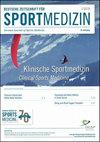恢复性应激状态心理测量训练监测的现状及未来发展方向
Q3 Health Professions
引用次数: 4
摘要
本文旨在概述精英运动心理测量训练监测领域的基本要求和注意事项。总结了心理测量工具选择和实施的理论基础和实践要求,并以恢复应激状态评估为例进行了说明。最重要的是,为了获得有意义的数据,应优先使用经过验证的循证问卷,而不是自建量表。此外,还讨论了个性化数据分析的当前趋势和方法,以指导明智的决策。统计策略在心理测量数据中的适用性有待进一步研究。数据的数字化和自动化处理可以减轻参与者的负担,而对算法和推理的控制应由人类保持。本质上,恢复应激状态的心理测量监测可以作为训练和再生管理的补充,前提是目标和程序是透明的、相称的和合理的。本文章由计算机程序翻译,如有差异,请以英文原文为准。
Current considerations and future directions of psychometric training monitoring of recovery-stress states
The present article aims at providing an overview of basic requirements and considerations in the area of psychometric training monitoring in elite sports. Theoretical foundations and practical demands on the selection and implementation of psychometric instruments are summarized and exemplified by the assessment of recovery-stress states. Most importantly, validated and evidence-based questionnaires should be preferred over self-built scales to obtain meaningful data. › Additionally, current trends and approaches of individualized data analyses to guide an informed decision are discussed. Further research on the applicability of statistical strategies for psychometric data is required. Digital and automatic processing of the data may reduce participant burden, while control over the algorithm and inferences should be maintained by human beings. › In essence, psychometric monitoring of the recovery-stress state may serve as supplement to training and regeneration management, provided that the aims and procedures are made transparent, proportionate and reasonable.
求助全文
通过发布文献求助,成功后即可免费获取论文全文。
去求助
来源期刊

Deutsche Zeitschrift fur Sportmedizin
Medicine-Orthopedics and Sports Medicine
CiteScore
2.00
自引率
0.00%
发文量
30
审稿时长
>12 weeks
期刊介绍:
The Deutsche Zeitschrift fuer Sportmedizin - German Journal of Sports Medicine has been
founded in 1951 and is dedicated to the biomedical science and clinical practice of Sports
Medicine and its border fields which investigate the influence of exercise, physical training
and sports as well as lack of exercise to healthy and sick people of all age-groups, related to
prevention, diagnosis, therapy, rehabilitation and physical training.
Manuscripts which deal with actual scientific and medical findings, new hypotheses, actual
controversies and problems in real life will be published. Possible Topics are physiology
and pathophysiology of exercise, medical and biological findings, the medical therapy of
exercise-related medical problems, epidemiology of sedentary lifestyle and related
disorders, therapy of sports injuries - especially the conservative postoperative treatment
of injuries -, medical training and rehabilitation medicine, as well as special social,
cultural, psychological and special science-related aspects of the entire scientific field.
 求助内容:
求助内容: 应助结果提醒方式:
应助结果提醒方式:


